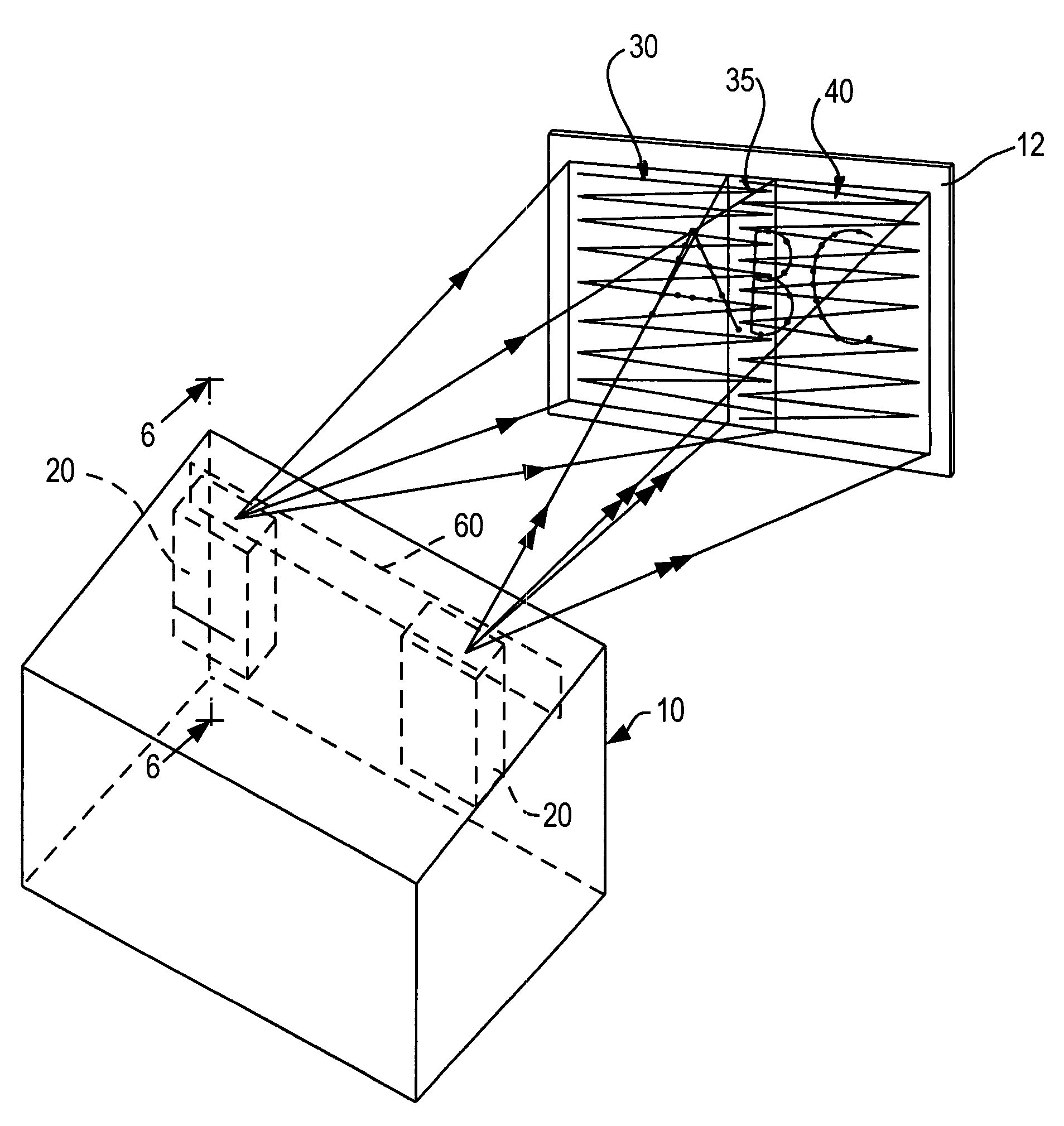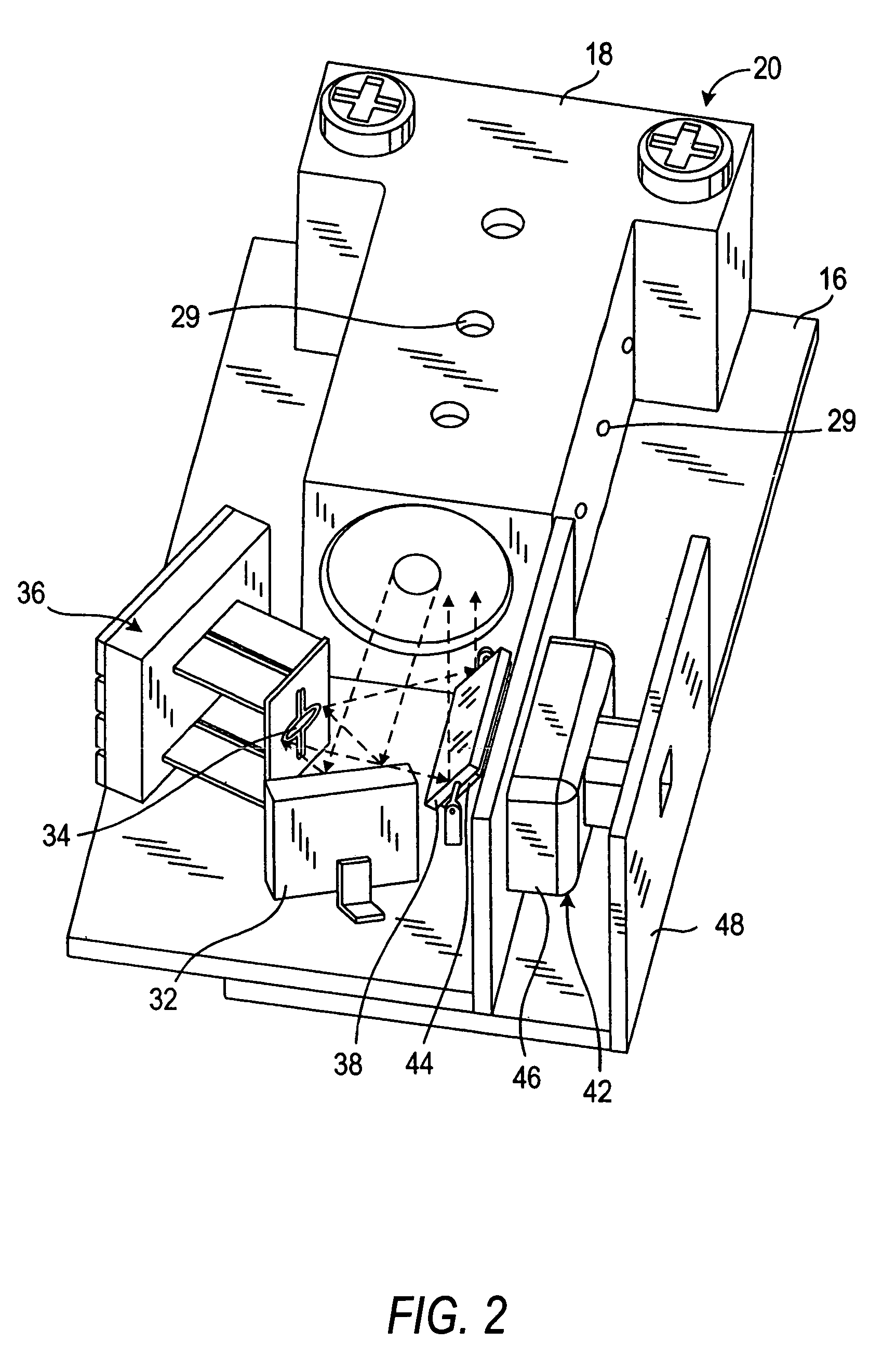Large size image projection
a projection system and image technology, applied in the field of two-dimensional projection, can solve the problems of limited size, insufficient power of single-mode lasers to produce color images of uniform brightness, and limited resolution of known image projection systems, so as to reduce the intensity of selected pixels, prevent any undesirable seams, and eliminate cross-coupling
- Summary
- Abstract
- Description
- Claims
- Application Information
AI Technical Summary
Benefits of technology
Problems solved by technology
Method used
Image
Examples
Embodiment Construction
[0035]Reference numeral 10 in FIG. 1 generally identifies a housing in which a plurality of lightweight, compact, image projection modules 20, as shown in FIG. 2, is mounted. Each module 20 is operative for projecting a two-dimensional image at the same distance from the module. As described below, each image is comprised of illuminated and non-illuminated pixels on a raster pattern 30, 40 of scan lines swept by a scanner in module 20, and the two images are combined together to form a single image of large size. Both raster patterns 30, 40 preferably have the same optical horizontal scan angle extending along the horizontal direction, and the same optical vertical scan angle extending along the vertical direction, of the respective image.
[0036]The parallelepiped shape of the housing 10 represents just one form factor in which the modules 20 may be incorporated. In the preferred embodiment, each module 20 measures about 30 mm×15 mm×10 mm or about 4.5 cubic centimeters. This compact,...
PUM
 Login to View More
Login to View More Abstract
Description
Claims
Application Information
 Login to View More
Login to View More - R&D
- Intellectual Property
- Life Sciences
- Materials
- Tech Scout
- Unparalleled Data Quality
- Higher Quality Content
- 60% Fewer Hallucinations
Browse by: Latest US Patents, China's latest patents, Technical Efficacy Thesaurus, Application Domain, Technology Topic, Popular Technical Reports.
© 2025 PatSnap. All rights reserved.Legal|Privacy policy|Modern Slavery Act Transparency Statement|Sitemap|About US| Contact US: help@patsnap.com



